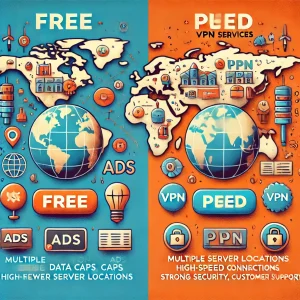In today’s rapidly evolving digital landscape, the concept of Virtual Confidential Organizations (VCOs) has emerged as a critical innovation for ensuring secure and efficient remote work environments. These organizations leverage advanced technologies to protect sensitive data and maintain confidentiality while enabling employees to work from anywhere in the world. As remote work becomes increasingly prevalent, understanding the mechanisms and benefits of Virtual Confidential Organizations is essential for businesses aiming to secure their operations and protect their valuable information.
The Rise of Remote Work and the Need for Virtual Confidential Organizations
The COVID-19 pandemic accelerated the adoption of remote work, highlighting the need for robust security measures to protect company data. Traditional security protocols often fall short in a distributed work environment, making it imperative for organizations to explore new solutions. Virtual Confidential Organizations address this challenge by providing a comprehensive framework for secure remote operations.
Core Components of a Virtual Confidential Organization
A Virtual Confidential Organization integrates several key technologies and practices to ensure the highest levels of security and confidentiality:
- Virtual Private Networks (VPNs): VPNs create encrypted connections between remote employees and the organization’s network, protecting data from unauthorized access. By masking IP addresses and encrypting internet traffic, VPNs safeguard sensitive information and maintain user privacy.
- Zero Trust Architecture: This security model operates on the principle of “never trust, always verify,” requiring strict identity verification for every person and device attempting to access resources. Zero Trust minimizes the risk of data breaches by continuously monitoring and validating credentials.
- Multi-Factor Authentication (MFA): MFA adds an extra layer of security by requiring multiple forms of verification before granting access. This approach significantly reduces the likelihood of unauthorized access, even if login credentials are compromised.
- End-to-End Encryption: Encrypting data both in transit and at rest ensures that even if it is intercepted, it remains unreadable without the appropriate decryption keys. End-to-end encryption is crucial for protecting sensitive communications and documents.
- Secure Access Service Edge (SASE): SASE combines networking and security services into a single cloud-based solution, simplifying management and enhancing security. This approach allows organizations to enforce consistent security policies across all remote locations.
Benefits of Implementing Virtual Confidential Organizations
The adoption of Virtual Confidential Organizations offers numerous advantages for businesses:
- Enhanced Security: By integrating advanced security technologies, Virtual Confidential Organizations provide robust protection against cyber threats, reducing the risk of data breaches and ensuring compliance with industry regulations.
- Flexibility and Scalability: Virtual Confidential Organizations support remote work by enabling employees to securely access company resources from any location. This flexibility is crucial for maintaining business continuity and accommodating a distributed workforce.
- Cost Savings: Implementing a Virtual Confidential Organization can lead to significant cost savings by reducing the need for physical office space and associated overhead expenses. Additionally, cloud-based security solutions often offer more cost-effective scalability compared to traditional on-premises systems.
- Improved Productivity: Secure remote access to company resources allows employees to work efficiently without compromising security. This capability can boost productivity and job satisfaction by enabling a better work-life balance.
- Compliance and Risk Management: Virtual Confidential Organizations help organizations meet regulatory requirements by ensuring data protection and privacy. This compliance is critical for avoiding legal penalties and maintaining customer trust.
Challenges and Considerations
While the benefits of Virtual Confidential Organizations are substantial, implementing and maintaining them involves several challenges:
- Complexity: Integrating multiple security technologies and practices can be complex and may require significant expertise. Organizations must ensure that their IT teams are well-trained and equipped to manage the intricacies of a Virtual Confidential Organization.
- Cost of Implementation: Initial setup costs for Virtual Confidential Organizations can be high, particularly for small and medium-sized businesses. However, these costs are often offset by long-term savings and improved security.
- Employee Training: Ensuring that employees understand and adhere to security protocols is essential for the success of a Virtual Confidential Organization. Continuous training and awareness programs are necessary to keep staff informed about best practices and potential threats.
- Continuous Monitoring and Maintenance: Virtual Confidential Organizations require ongoing monitoring and maintenance to address emerging threats and vulnerabilities. Organizations must invest in the necessary tools and resources to keep their security measures up to date.
Case Studies: Successful Implementation of Virtual Confidential Organizations
Several organizations have successfully implemented Virtual Confidential Organizations to enhance their remote work security:
- Tech Innovators Inc.: A leading software development company, Tech Innovators Inc. adopted a Virtual Confidential Organization framework to support their global remote workforce. By integrating VPNs, MFA, and end-to-end encryption, the company significantly reduced the risk of data breaches and maintained high productivity levels.
- Global Finance Corp.: This financial services firm implemented a Zero Trust architecture and SASE solution to protect sensitive financial data. The VCO approach allowed Global Finance Corp. to comply with stringent industry regulations while enabling secure remote access for employees.
- Healthcare Solutions Ltd.: Facing the challenge of protecting patient data, Healthcare Solutions Ltd. deployed a Virtual Confidential Organization with robust encryption and secure communication tools. This implementation ensured compliance with health information privacy laws and facilitated secure telehealth services.
Future Trends and Innovations
As technology continues to evolve, the concept of Virtual Confidential Organizations will likely expand and incorporate new innovations:
- Artificial Intelligence (AI) and Machine Learning: AI-driven security solutions can enhance threat detection and response by analyzing patterns and identifying anomalies in real-time. Integrating AI with Virtual Confidential Organizations can provide proactive protection against sophisticated cyber threats.
- Blockchain Technology: Blockchain can enhance data security by providing a decentralized and tamper-proof ledger for recording transactions. This technology can be used to secure sensitive information and ensure data integrity within a Virtual Confidential Organization framework.
- Quantum Encryption: As quantum computing advances, quantum encryption methods will offer unprecedented levels of security. Implementing quantum encryption in Virtual Confidential Organizations can protect against future threats posed by quantum computers.
Conclusion
Virtual Confidential Organizations represent a vital advancement in securing remote work environments. By leveraging cutting-edge technologies such as VPNs, Zero Trust Architecture, MFA, and end-to-end encryption, Virtual Confidential Organizations provide robust protection for sensitive data and ensure business continuity. While the implementation of Virtual Confidential Organizations presents challenges, the benefits far outweigh the costs, offering enhanced security, flexibility, and productivity. As the digital landscape continues to evolve, organizations must stay ahead of emerging threats by adopting innovative solutions and maintaining a strong focus on cybersecurity. Through the strategic deployment of Virtual Confidential Organizations, businesses can secure the future of remote work and safeguard their most valuable assets.
If you know about the Top VPN Services in 2024, click here





